
Loyada: A Gateway to Tranquility and Cultural Riches
Nestled in the southern part of Djibouti, Loyada is a serene coastal town that offers a unique blend of natural beauty and cultural heritage. This charming destination is known for its tranquil beaches, making it an ideal spot for those looking to escape the hustle and bustle of city life. The azure waters and pristine sands provide a perfect setting for relaxation and rejuvenation. Whether you are interested in sunbathing, swimming, or simply enjoying a quiet walk along the shore, Loyada's beaches are the perfect place to unwind. Beyond its stunning coastline, Loyada holds historical significance as a former border crossing between Djibouti and Somalia. The town's rich history is reflected in its vibrant local culture and traditions. Visitors can explore local markets, where artisans sell handcrafted goods and traditional Djiboutian cuisine is served in small, family-run eateries. The warm and welcoming locals are always eager to share stories about their heritage, offering tourists a deep insight into the way of life in this unique part of the world. For those with an adventurous spirit, Loyada serves as a gateway to exploring the surrounding natural landscapes. The nearby Goda Mountains and Day Forest National Park offer excellent opportunities for hiking and wildlife spotting. Birdwatchers will particularly enjoy the diverse array of avian species that inhabit the region. Additionally, Loyada's proximity to the Gulf of Tadjoura makes it a convenient starting point for marine excursions, including snorkeling and diving in the coral-rich waters of the Red Sea.
Local tips in Loyada
- Visit the local markets early in the morning to experience the bustling atmosphere and find the freshest local produce.
- Bring sunscreen and plenty of water when exploring the beaches or hiking in the nearby mountains, as the sun can be very intense.
- Engage with the locals; they are friendly and can provide valuable insights into the best places to visit and eat.
- If you plan to go snorkeling or diving, consider booking your excursions in advance, especially during the peak tourist season.
- Check the local weather forecast before heading out on outdoor adventures to avoid unexpected changes in weather conditions.
Loyada: A Gateway to Tranquility and Cultural Riches
Nestled in the southern part of Djibouti, Loyada is a serene coastal town that offers a unique blend of natural beauty and cultural heritage. This charming destination is known for its tranquil beaches, making it an ideal spot for those looking to escape the hustle and bustle of city life. The azure waters and pristine sands provide a perfect setting for relaxation and rejuvenation. Whether you are interested in sunbathing, swimming, or simply enjoying a quiet walk along the shore, Loyada's beaches are the perfect place to unwind. Beyond its stunning coastline, Loyada holds historical significance as a former border crossing between Djibouti and Somalia. The town's rich history is reflected in its vibrant local culture and traditions. Visitors can explore local markets, where artisans sell handcrafted goods and traditional Djiboutian cuisine is served in small, family-run eateries. The warm and welcoming locals are always eager to share stories about their heritage, offering tourists a deep insight into the way of life in this unique part of the world. For those with an adventurous spirit, Loyada serves as a gateway to exploring the surrounding natural landscapes. The nearby Goda Mountains and Day Forest National Park offer excellent opportunities for hiking and wildlife spotting. Birdwatchers will particularly enjoy the diverse array of avian species that inhabit the region. Additionally, Loyada's proximity to the Gulf of Tadjoura makes it a convenient starting point for marine excursions, including snorkeling and diving in the coral-rich waters of the Red Sea.
When is the best time to go to Loyada?
Iconic landmarks you can’t miss
Mosquée Al-Hamoudi
Discover the Al-Hamoudi Mosque in Djibouti City: a historic landmark showcasing Islamic architecture and cultural significance in the heart of the capital.
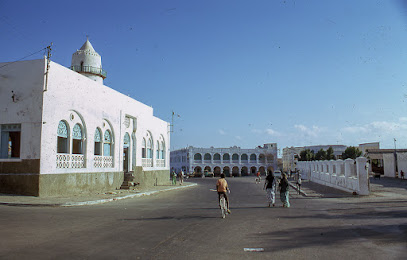
The People's Palace
A monumental complex in Djibouti City, symbolizing the nation's freedom and offering a glimpse into its political and cultural landscape.
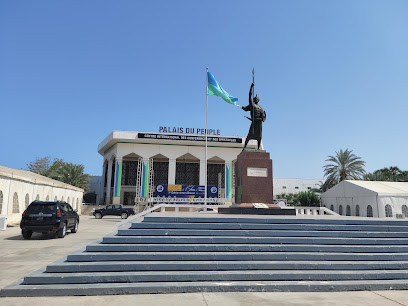
Moucha Island
Discover Moucha Island: A Djiboutian paradise offering pristine beaches, vibrant marine life, and a rich history.
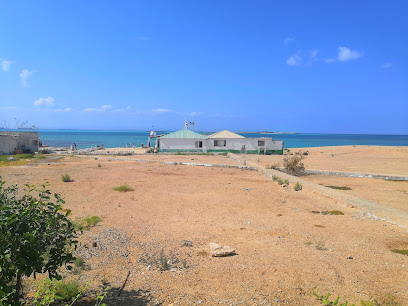
Hotel Auberge Boulaos
Comfortable and affordable stay in Djibouti's industrial area, offering convenient access to the airport and city attractions.

Turkish Mosque
Djibouti's largest mosque, a gift from Turkey, showcasing stunning Ottoman architecture and symbolizing a strong cultural bond.
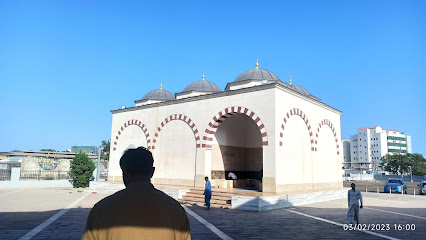
Day Forest National Park
Discover Djibouti's hidden gem: a lush mountain oasis with unique wildlife, scenic trails, and breathtaking views in Day Forest National Park.
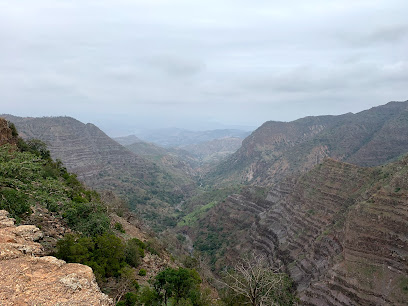
Masjid al-Qiblatayn
Explore Masjid al-Qiblatayn in Saylac, Somalia: a historic mosque with two qiblas, reflecting early Islamic traditions and offering a unique cultural experience.
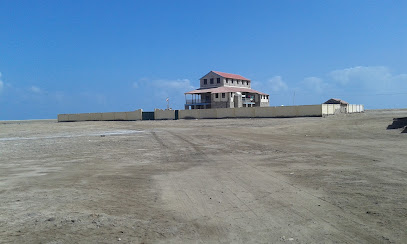
DECAN Refuge
Discover Djibouti's wildlife at DECAN Refuge, a sanctuary dedicated to rescuing and rehabilitating animals while promoting conservation.
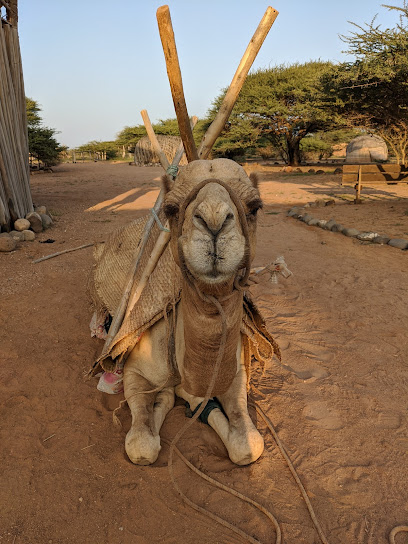
Al Sada Mosque
Discover the spiritual heart of Djibouti at Al Sada Mosque, a historic landmark showcasing Islamic architecture and cultural heritage.
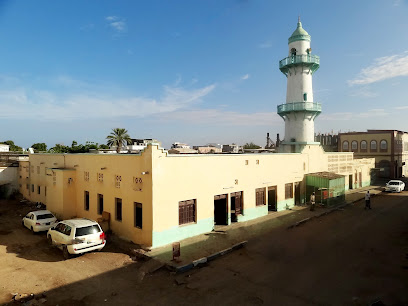
Residence Hotel Bellevue
Experience comfort & convenience at Residence Hotel Bellevue, your ideal Djibouti City base for culture, markets, and culinary delights.

Mosqueé Al-Nadwat
Discover Mosqueé Al-Nadwat in Djibouti City: An architectural marvel and cultural landmark offering a serene spiritual haven and a glimpse into Djibouti's Islamic heritage.
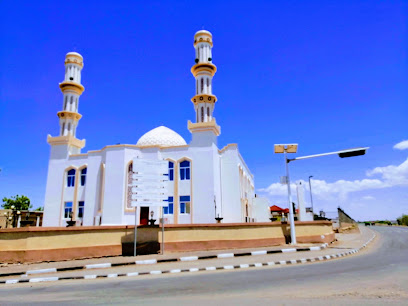
Dolphin Excursions Djibouti
Discover Djibouti's underwater paradise with Dolphin Excursions: Scuba diving, snorkeling, whale shark tours, and unforgettable Red Sea adventures.
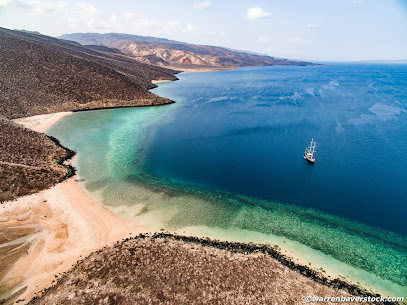
Arta Beach
Escape to Arta Beach in Djibouti: Golden sands, turquoise waters, and tranquil beauty await on the Gulf of Tadjoura. A perfect coastal getaway.
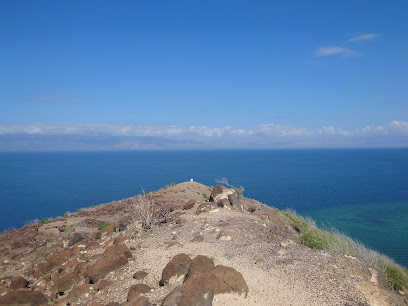
RESTAURANT LOYADA
Experience authentic Djiboutian cuisine at Loyada Restaurant in Balbala, where traditional flavors meet warm hospitality.

St. Gabriel Ethiopian Orthodox Church, Djibouti
Discover Ethiopian heritage at St. Gabriel Ethiopian Orthodox Church in Djibouti, a serene sanctuary of faith, art, and community.
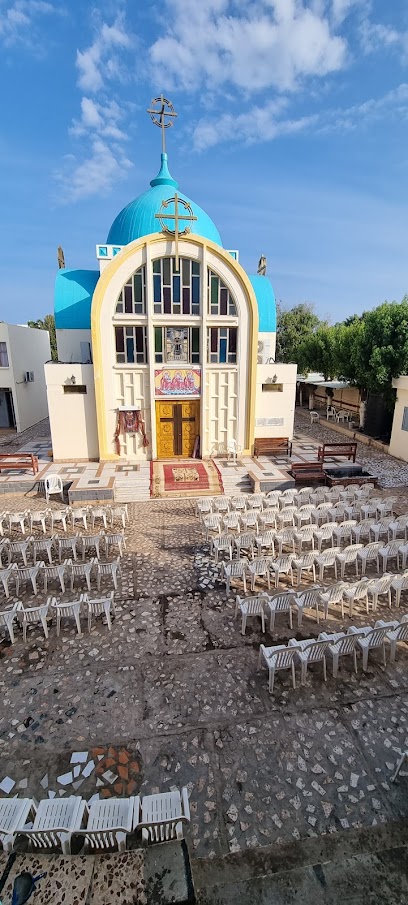
Unmissable attractions to see
The People's Palace
Discover the vibrant history and cultural significance of The People's Palace, a stunning landmark in Djibouti, where tradition meets modernity.
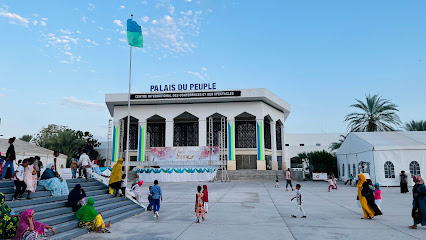
Day Forest National Park
Explore the enchanting landscapes of Day Forest National Park, a haven for nature lovers and adventurers in Airolaf.
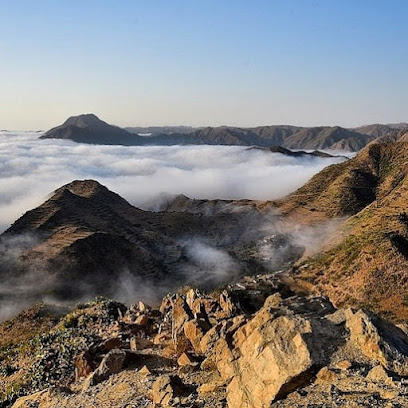
Dolphin Excursions Djibouti
Dive into the stunning waters of Djibouti with Dolphin Excursions, the ultimate SCUBA tour agency for unforgettable underwater adventures.
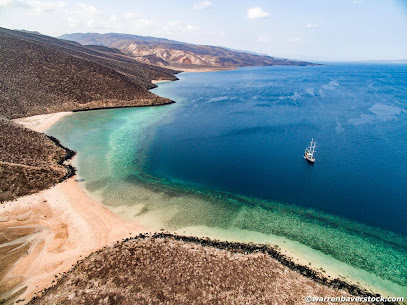
Jardin Public
Experience the serene beauty of Jardin Public in Djibouti, a perfect park for relaxation, picnics, and local culture.
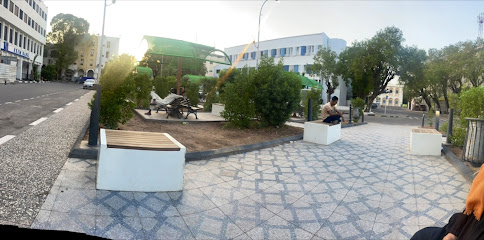
Essential places to dine
Melting Pot
Explore the diverse culinary landscape at Melting Pot in Djibouti—where global flavors meet local charm in an unforgettable dining experience.
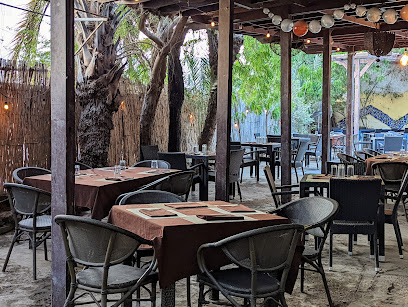
Pizzaiolo Haramous
Discover the vibrant flavors of Djibouti at Pizzaiolo Haramous – where local meets international cuisine in a cozy atmosphere.
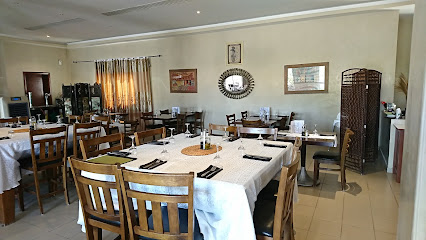
Moonlight Restaurant
Experience exquisite local flavors at Moonlight Restaurant in Djibouti – where culinary tradition meets modern dining.
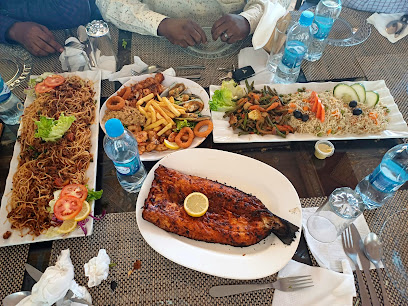
Café de la Gare
Experience authentic French cuisine at Café de la Gare in Djibouti – where delightful flavors meet warm hospitality.
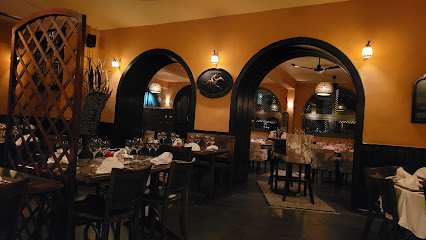
Restaurant La Mer Rouge
Experience a culinary journey at Restaurant La Mer Rouge – where seafood meets international flavors in the heart of Djibouti.
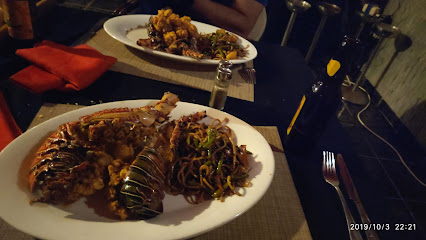
La Pergola
Experience authentic West African cuisine at La Pergola in Djibouti, where every dish tells a story and flavors come alive.
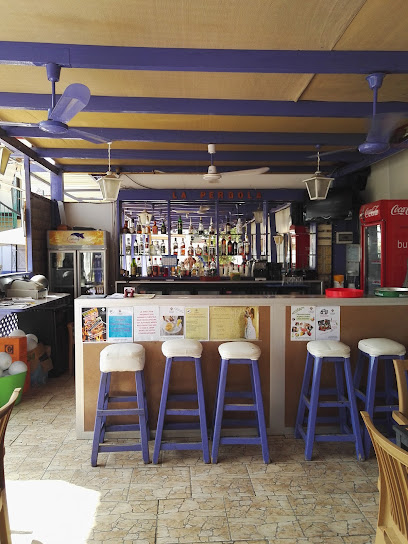
Al-Basha Bin Madi Restaurant
Experience authentic Yemenite cuisine at Al-Basha Bin Madi Restaurant in Djibouti—where flavor meets culture.
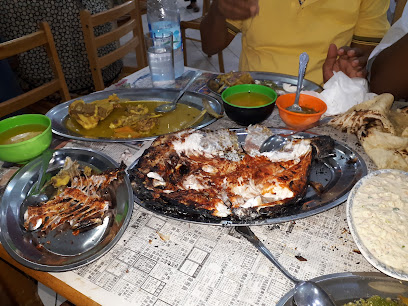
Janateyn Yemeni restaurant
Experience authentic Yemeni cuisine at Janateyn Yemeni Restaurant in Djibouti - where every dish tells a story.
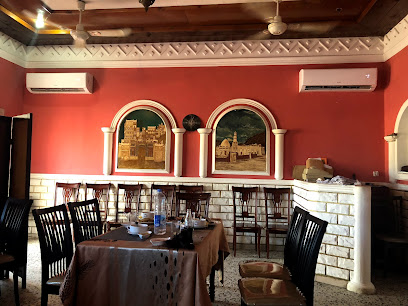
Saba Restaurant
Indulge in authentic Yemeni cuisine at Saba Restaurant in Djibouti - a true culinary gem showcasing rich flavors and cultural heritage.
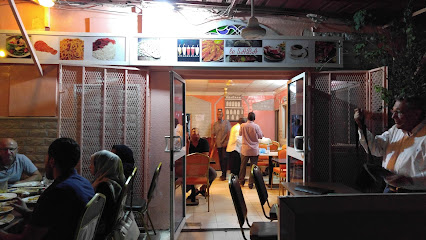
Le Santal
Experience authentic Indian cuisine at Le Santal in Djibouti - where every dish tells a story of tradition and flavor.
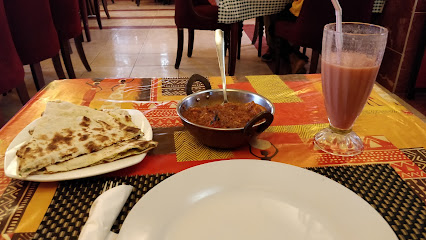
Beach House
Discover Djibouti's culinary gem at Beach House, where exquisite flavors meet stunning coastal views for an unforgettable dining experience.
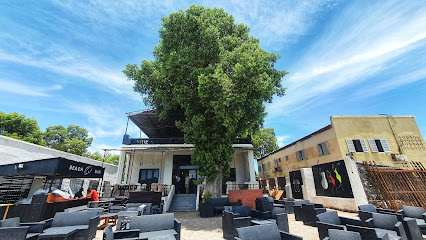
بن ماضي المندي
Experience authentic Yemenite cuisine at بن ماضي المندي in Djibouti – where every dish tells a story.
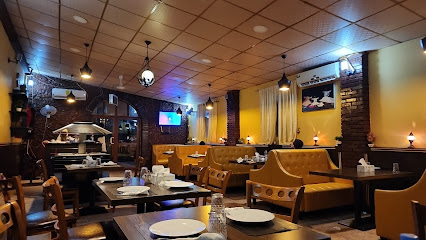
Restaurant NUMBER 1
Experience authentic Djiboutian flavors at Restaurant NUMBER 1 - where local meets global in a delightful dining experience.
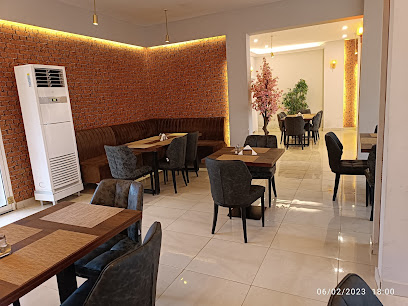
Restaurant Le Longchamp مطبخ بن ماضي
Experience the rich flavors of Djibouti at Restaurant Le Longchamp – where tradition meets modern dining in a vibrant atmosphere.
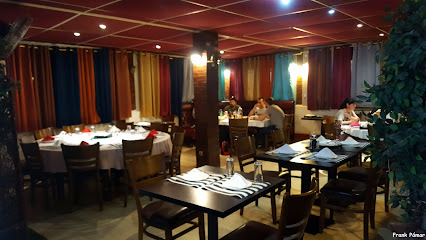
Jules Verne
Discover authentic Djiboutian cuisine at Jules Verne, where fresh ingredients meet delightful flavors in an inviting atmosphere.
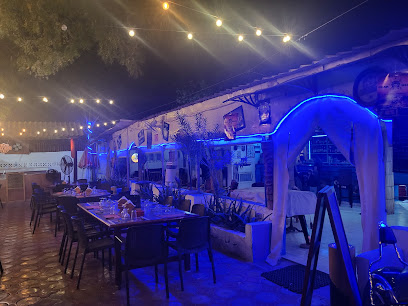
Markets, malls and hidden boutiques
DISCORAMA
Explore DISCORAMA in Djibouti, your ultimate destination for books, unique gifts, and a taste of local culture.
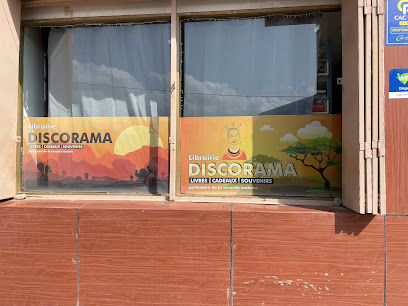
DJIBAH DJIBOUTI
Explore the vibrant seafood market of Djibah, Djibouti, where fresh catches meet rich culinary traditions along stunning coastal views.

Habone-Deka Djibouti
Explore Habone-Deka Djibouti for a unique shopping experience featuring local fashion, exquisite jewelry, and captivating fragrances in Djibouti.
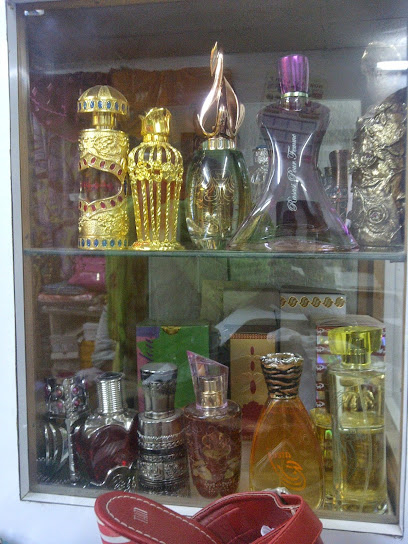
Magasin Chez Farah
Explore Magasin Chez Farah in Djibouti for authentic local crafts and unique souvenirs that embody the spirit of the region.
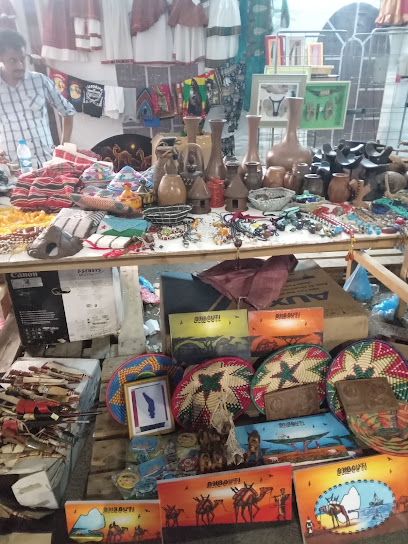
Godoria Shop
Discover unique clothing options at Godoria Shop, a vibrant store in Djibouti that offers a blend of traditional and contemporary styles.
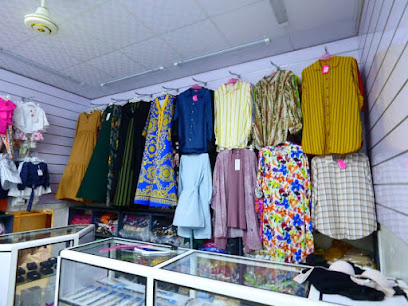
ALMOUKTAR PERFUMES
Discover the captivating world of scents at Almouktar Perfumes, a must-visit shopping destination in Djibouti for fragrance enthusiasts.
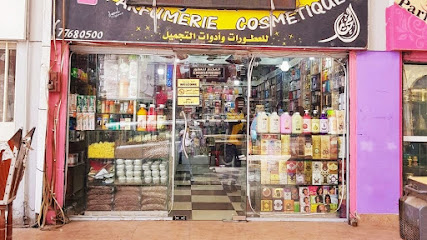
Fashion Shop Défilé
Explore unique fashion at Fashion Shop Défilé, Djibouti's premier clothing store, offering stunning apparel reflecting local culture and style.
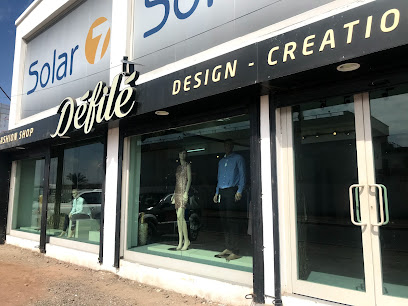
Ali Baba Treasures
Explore Ali Baba Treasures in Djibouti for unique souvenirs and local crafts that capture the essence of your travel experience.
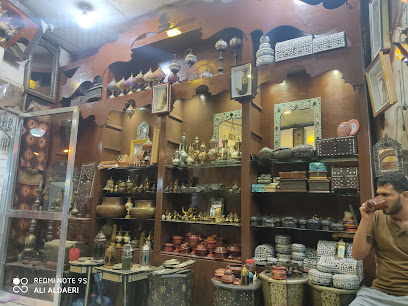
Boutique Abdichekeye
Explore Boutique Abdichekeye in Balbala for exclusive fashion accessories that celebrate local artistry and vibrant style.

Abushenbu shopping centre
Explore the vibrant Abushenbu Shopping Centre in Djibouti, where local culture meets a unique shopping experience. Discover souvenirs and everyday essentials.
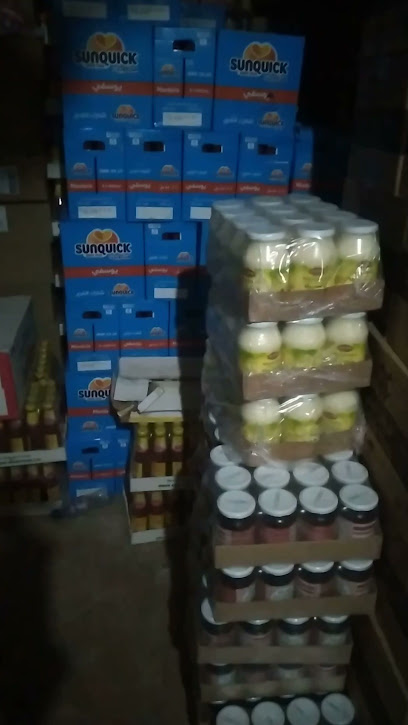
Boutique warsama omar
Explore the charm of Boutique Warsama Omar, a collectibles store offering unique treasures and local crafts in Damerjog, Djibouti.
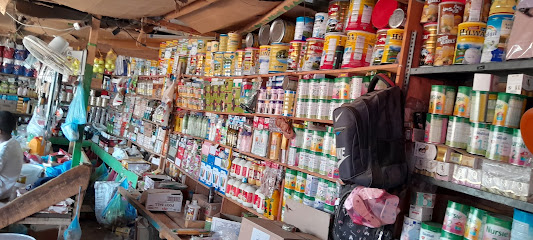
Bricocoeur- Vos Cadeaux personnalisés
Explore Bricocoeur in Djibouti for unique, personalized gifts that capture the spirit of your travels.
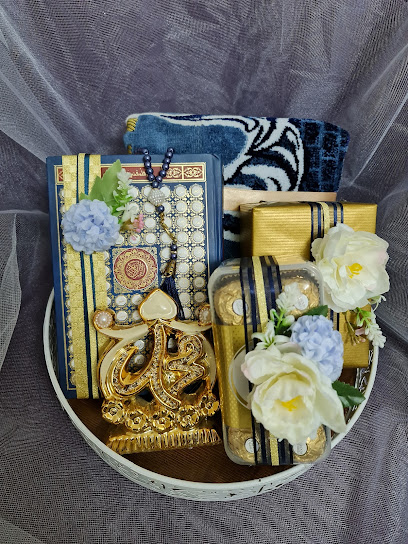
Wally Shop
Explore Wally Shop in Djibouti for an eclectic collection of men's fashion, blending local styles with international trends.

Proxy Shop Haramous
Experience the local charm and unique offerings at Proxy Shop Haramous, a must-visit general store in the heart of Djibouti.
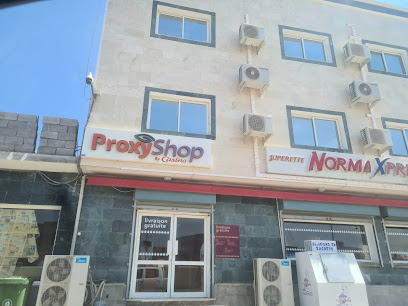
kiosque Ziaad
Explore Kiosque Ziaad in Djibouti for an unforgettable shopping experience filled with unique fashion accessories that celebrate local artistry.

Essential bars & hidden hideouts
11 Degrees North
Discover the vibrant nightlife at 11 Degrees North, a lively pub in Djibouti offering local flavors and a welcoming atmosphere for all visitors.
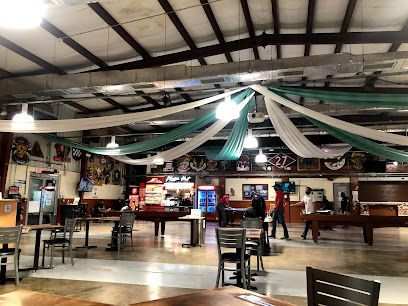
Restaurant La Mer Rouge
Experience the best of Djibouti's culinary scene at Restaurant La Mer Rouge, where seafood and diverse international flavors meet in a lively atmosphere.
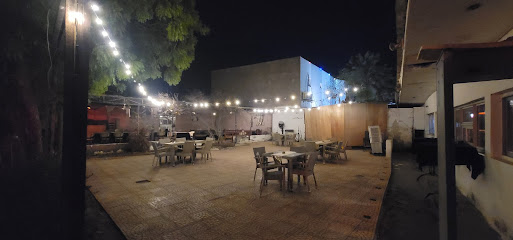
QG Pub & Resto
Experience the essence of Djibouti's barbecue culture at QG Pub & Resto, where flavor meets vibrant atmosphere.
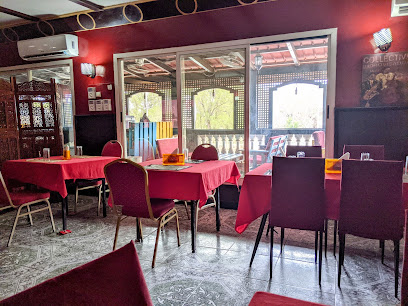
Timeout Restaurant and Sport Bar
Discover the lively spirit and flavors of Djibouti at Timeout Restaurant and Sport Bar, where local cuisine meets sports excitement.
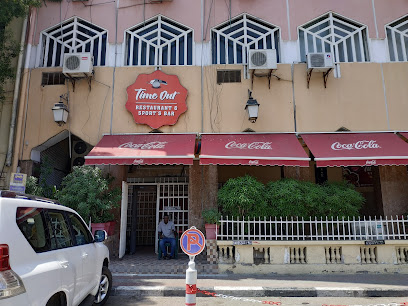
Ayla Cafe Djibouti
Experience the culinary delights of Djibouti at Ayla Cafe, where local flavors meet international cuisine in a welcoming atmosphere.
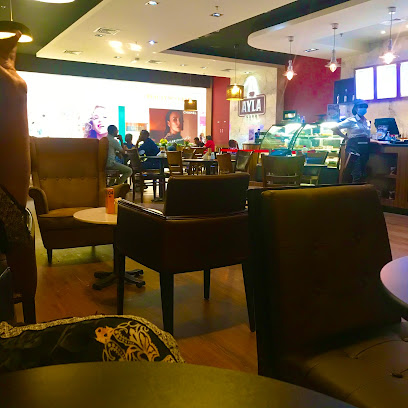
Cantina
Experience the vibrant nightlife of Djibouti at Cantina, where locals and travelers unite over drinks and good times.

RESTAURANT LOYADA
Experience the authentic tastes of Djibouti at Restaurant Loyada, a vibrant eatery in Balbala known for its traditional dishes and warm hospitality.

Safari Club Kempinski
Explore the vibrant atmosphere of Safari Club Kempinski, the ultimate bar experience in Djibouti, where luxury meets lively nightlife.

Crystal Lounge Sheraton Djibouti
Experience luxury dining and vibrant nightlife at Crystal Lounge Sheraton Djibouti, where culinary delights meet stunning coastal views.
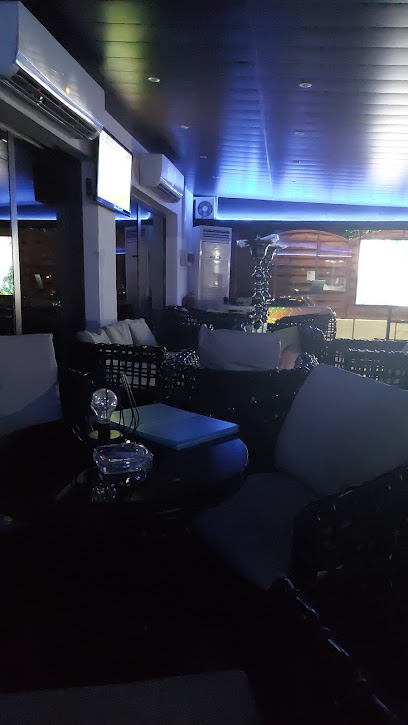
Mystic lounge & restaurant
Discover the flavors of Djibouti at Mystic Lounge & Restaurant, where local cuisine meets international flair in a vibrant setting.
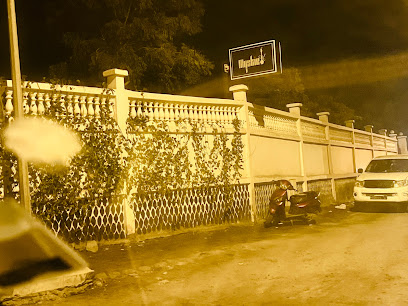
Pub Palmier Zink
Discover the lively atmosphere and friendly service at Pub Palmier Zink, a must-visit bar in the heart of Djibouti for an unforgettable experience.
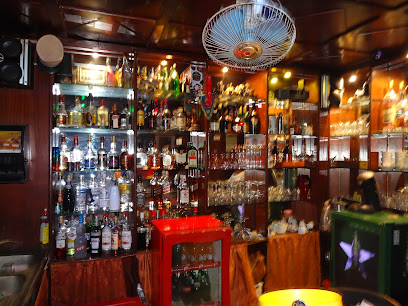
The Goat Locker
Discover the lively atmosphere of The Goat Locker, a bar in Djibouti where local culture meets a welcoming vibe for all travelers.

B B S Lounge (Bar By Sing's)
Discover the vibrant nightlife at B B S Lounge, an open rooftop bar in Djibouti offering stunning views and refreshing drinks.

Scotch djibouti
Discover the vibrant nightlife at Scotch Djibouti, where excellent drinks and lively ambiance create unforgettable evenings.
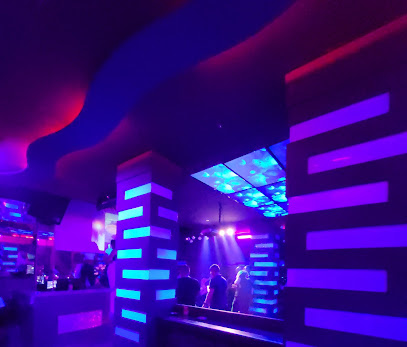
Local Phrases
-
- HelloSalaam
[sah-lahm] - GoodbyeMa'a salaama
[mah-ah sah-lah-mah] - YesEey
[ay-ee] - NoMaya
[mah-yah] - Please/You're welcomeMarhaba
[mar-hah-bah] - Thank youMisaamah
[mees-ah-mah] - Excuse me/SorrySamahani
[sah-mah-hah-nee] - How are you?Sidee tahay?
[see-dee tah-hay] - Fine. And you?Waa nabad. Iiyadah?
[wah nah-bahd. ee-yah-dah] - Do you speak English?Miyaad Ingiriis ku hadashaa?
[mee-yahd een-gee-rees koo hah-dah-shah] - I don't understandMa faham
[mah fah-hahm]
- HelloSalaam
-
- I'd like to see the menu, pleaseFadlan aniga menuka i arki
[fad-lahn ah-nee-gah meh-noo-kah ee ar-kee] - I don't eat meatAniga wax la aan
[ah-nee-gah wakh lah ahn] - Cheers!Bac
[bahj] - I would like to pay, pleaseFadlan waxaan raacayaa
[fad-lahn wah-kahn rah-jah-yah]
- I'd like to see the menu, pleaseFadlan aniga menuka i arki
-
- Help!Caaw
[chah-ow] - Go away!Tuujo
[too-joh] - Call the Police!Wac lacagta!
[wahj lah-jahg-tah] - Call a doctor!Wac dhakhtar!
[wahj dahk-tahr] - I'm lostAniga nala talin
[ah-nee-gah nah-lah tah-lin] - I'm illAniga waa jiraa
[ah-nee-gah wah jee-rah]
- Help!Caaw
-
- I'd like to buy...Fadlan aniga waxaan iib gali karaa...
[fad-lahn ah-nee-gah wah-kahn eeb gah-lee kah-rah] - I'm just lookingAniga waxaan halkan arkayaa
[ah-nee-gah wah-kahn hahl-kahn ar-kah-yah] - How much is it?Waa qadar?
[wah kah-dahr] - That's too expensiveWaa qadar yar
[wah kah-dahr yar] - Can you lower the price?Ma tijaabi kartid qiimaha?
[mah tee-jah-bee kar-teed kee-mah-hah]
- I'd like to buy...Fadlan aniga waxaan iib gali karaa...
-
- What time is it?Waa waqtiga maxaa?
[wah wahk-tee-gah mah-hah] - It's one o'clockWaa hal
[wah hahl] - Half past (10)Dabeyaal (10)
[dah-bey-yahl (10)] - MorningSubax
[soo-bahk] - AfternoonGalab
[gah-lahb] - EveningCisho
[chee-shoh] - YesterdayShalay
[shah-lahy] - TodayMaanta
[mah-ahn-tah] - TomorrowBerri
[behr-ree] - 1Kow
[kohw] - 2Labeen
[lah-been] - 3Saddex
[sahd-dekh] - 4Afar
[ah-fahr] - 5Shan
[shahn] - 6Lix
[leex] - 7Toddobaad
[tohd-doh-bahd] - 8Sideed
[see-deed] - 9Sagaal
[sah-gahl] - 10Toban
[toh-bahn]
- What time is it?Waa waqtiga maxaa?
-
- Where's a/the...?Maxay tahay...
[mah-hah-ee tah-hay] - What's the address?Cinwaanka maxaa?
[cheen-wahn-kah mah-hah] - Can you show me (on the map)?Miyaad i arkaysaa (khariidad)?
[mee-yahd ee ar-kah-yah-sah (kah-ree-dahd)] - When's the next (bus)?Marka la soo dhaafay (baas)?
[mahr-kah lah soh dah-fahy (bahs)] - A ticket (to ....)Tikid (ila ....)
[tee-keed (ee-lah)]
- Where's a/the...?Maxay tahay...
History of Loyada
-
Loyada, strategically located on the coast of Djibouti, has for centuries served as a crucial node in ancient trade routes. It was a pivotal stop for caravans transporting goods such as spices, gold, and ivory between the Arabian Peninsula, the Horn of Africa, and beyond. The town's historical significance is deeply rooted in its role as a bustling trade hub, fostering exchanges between diverse cultures and civilizations.
-
During the colonial era, Loyada became a focal point of contention between French Somaliland (modern-day Djibouti) and British Somaliland (modern-day Somalia). The town’s proximity to the border made it a flashpoint for disputes. Notably, the 1964 Loyada incident, where tensions escalated between French and Somali forces, marked an important moment in the history of colonial border conflicts in the region.
-
Following Djibouti's independence from France in 1977, Loyada continued to be an area of strategic importance. The post-independence period saw efforts to bolster the town's infrastructure and integrate it more closely into the national framework. Initiatives to improve transportation links and economic opportunities have been central to the town’s development, reflecting broader national growth trends.
-
Loyada is a melting pot of cultures, with influences from Somali, Afar, and French traditions. The town is known for its vibrant cultural heritage, including traditional music, dance, and cuisine. Festivals and community gatherings play a significant role in preserving and celebrating Loyada’s unique cultural identity. The town’s markets are a testament to its rich cultural tapestry, offering everything from traditional handicrafts to local delicacies.
-
In contemporary times, Loyada has emerged as an important gateway to the Red Sea, bolstered by its strategic coastal location. Efforts to develop the town's port facilities have enhanced its role in regional maritime trade. Loyada's modern infrastructure, combined with its historical significance, makes it an intriguing destination for visitors interested in exploring the intersections of history, culture, and economic development.
Loyada Essentials
-
Loyada is located near the southern border of Djibouti, adjacent to Somalia. The easiest way to reach Loyada is by flying into Djibouti-Ambouli International Airport (JIB), which is the main international gateway to the country. From the airport, Loyada is approximately a 30-minute drive. You can hire a taxi or arrange for a private transfer. Public buses and shared taxis (locally known as 'bush taxis') also operate between Djibouti City and Loyada.
-
Loyada is a small town, and most of its attractions can be explored on foot. Taxis are available and are relatively affordable. For longer trips or more remote areas, hiring a car with a driver is a convenient option. Public buses and bush taxis are the primary modes of public transportation and can be a cost-effective way to travel, although they can be crowded and less comfortable.
-
The official currency of Djibouti is the Djiboutian Franc (DJF). Credit cards are not widely accepted in Loyada, so it's advisable to carry sufficient cash. ATMs are available in Djibouti City but may not be accessible in Loyada. It is recommended to exchange currency or withdraw cash in Djibouti City before heading to Loyada.
-
Loyada is generally safe, but standard travel precautions should be taken. Avoid walking alone at night and be cautious in less populated areas. Petty crime such as pickpocketing can occur, so keep an eye on your belongings. While Loyada itself does not have high-crime neighborhoods, its proximity to the border requires extra vigilance. Always be aware of your surroundings and avoid displaying valuables in public.
-
In case of an emergency, dial 17 for police assistance and 19 for medical emergencies. It's advisable to have travel insurance that covers medical emergencies. The nearest medical facilities are in Djibouti City, so for serious health issues, you may need to travel there. Pharmacies in Loyada are limited, so carry essential medications with you.
-
Fashion: Do dress modestly. Avoid wearing revealing clothing out of respect for local customs. Religion: Do respect local religious practices. Avoid entering mosques unless invited, and always remove your shoes before entering. Public Transport: Do be patient and respectful when using public transport. Don't eat or drink on public buses. Greetings: Do greet people with a handshake, and use the right hand as the left is considered impolite. Eating & Drinking: Do try local foods and accept hospitality graciously. Don’t refuse food or drink offerings, as this may be considered rude.
-
To experience Loyada like a local, visit the local markets where you can buy fresh produce and traditional Djiboutian goods. Engage with locals, who are typically friendly and willing to share their culture and stories. Don't miss the opportunity to taste traditional dishes such as 'lahoh' (a type of flatbread) and 'fah-fah' (a local soup). If you're interested in history, explore the area around the border to understand the historical significance of Loyada as a gateway between Djibouti and Somalia.
Trending Landmark in Loyada
-
Mosquée Al-Hamoudi
-
The People's Palace
-
Moucha Island
-
Hotel Auberge Boulaos
-
Turkish Mosque
-
Day Forest National Park
-
Masjid al-Qiblatayn
-
DECAN Refuge
-
Al Sada Mosque
-
Residence Hotel Bellevue
-
Mosqueé Al-Nadwat
-
Dolphin Excursions Djibouti
-
Arta Beach
-
RESTAURANT LOYADA
-
St. Gabriel Ethiopian Orthodox Church, Djibouti
Nearby Cities to Loyada
-
Things To Do in Djibouti City
-
Things To Do in Arta
-
Things To Do in Tadjoura
-
Things To Do in Obock
-
Things To Do in Ali Sabieh
-
Things To Do in Dikhil
-
Things To Do in Hargeisa
-
Things To Do in Aden
-
Things To Do in Dire Dawa
-
Things To Do in Harar
-
Things To Do in Ibb
-
Things To Do in Dhamar
-
Things To Do in Sana'a
-
Things To Do in Lalibela
-
Things To Do in Mekele




